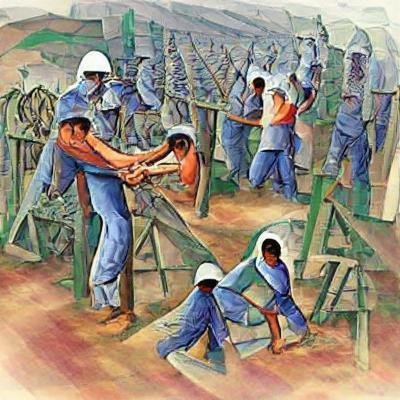What is the UFLPA and Why Should Importers Care?

What is the UFLPA?
The Uyghur Forced Labor Prevention Act (UFLPA) is a law that was passed on December 23, 2021 in response to concerns about what products are made in Xinjiang, China using forced labor. The UFLPA established the Forced Labor Enforcement Task Force to develop a strategy for prohibiting goods made with forced labor from being imported into the United States and applies to all imports from the Xinjiang Uyghur Autonomous Region (XUAR).
The law includes a “rebuttable presumption,” which became effective on June 21, 2022, meaning that any imports after this date are presumed to be produced by forced labor. As a result of the UFLPA, any goods that are found to have a connection to the XUAR and China Xinjiang human rights issues are presumed to be produced by forced labor and will not be allowed into the United States.
If an importer’s goods are stopped by US Customs and Border Protection (CBP) for UFLPA enforcement purposes, the importer must prove that the goods have no connection to the XUAR or any entity on the UFLPA Entity List. If CBP believes that there is evidence that the goods are tied to the XUAR, the importer must seek a UFLPA exception and rebut with “clear and convincing evidence” the statute’s presumption of forced labor.
Importers should have a compliance program in place for XUAR forced labor issues, both for legal reasons and for business and ethical reasons. One of the main ways CBP will enforce the law is by requiring importers to obtain information on the source of all inputs into the final product they are importing, sometimes going back several production steps. This will be a major challenge in some instances because obtaining this information from suppliers is often difficult. The question for importers becomes, what is practical in the real world? Those answers are being worked out now by most importers.
The UFPLA in Context
There has been a growing awareness of the prevalence of forced labor and human trafficking in global supply chains. This has increased pressure on companies to ensure that their suppliers comply with laws and regulations related to forced labor. Several initiatives and programs have been launched in recent years to help companies address forced labor risks in their supply chains.
One trend that has emerged is using audits to assess compliance with forced labor standards. Many companies are now conducting audits of their suppliers to identify any potential risks of forced labor. These audits can be costly and time-consuming, but they are seen as an important tool for ensuring compliance.
Another trend is the development of voluntary codes of conduct or standards that address forced labor risks. These codes or standards guide companies in identifying and preventing forced labor in their supply chains. Industry groups or NGOs develop many of these codes or standards, and companies often adopt them as part of their commitment to responsible sourcing.
There has also been an increase in the use of technology to help identify forced labor risks in supply chains. A number of software applications have been developed that can help companies track and monitor their suppliers to identify any potential red flags. These tools can be used to conduct audits, track supplier performance, and monitor compliance with codes of conduct or standards.
The issue of forced labor is complex, and there is no one-size-fits-all solution for addressing it. However, the trends described above are helping to raise awareness of the issue and create new tools and resources for companies to use in addressing forced labor risks in their supply chains.
————————————————————————————————
Our solution: Concerned about the cost of complying with the UFLPA? KYG Trade is here to help. We provide an open, interoperable, decentralized collaboration platform for trade + ESG compliance, using the new global standard for product compliance attributes, OriginBX™. We facilitate secure, permission-based access to product attribute data to create a genomic map of your products and supply chain. We then use AI-powered analysis of the product genome to detect forced labor risk. Schedule a demo today!